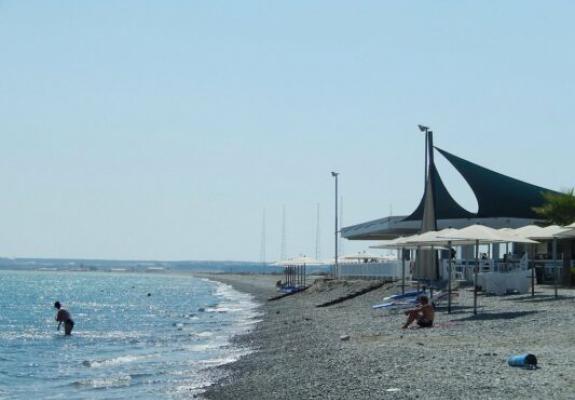Leaders and Experts Gather in Cyprus to Address Climate Challenges in the Region
International Conference on Climate Crisis in the Eastern Mediterranean
Cyprus will host an international conference titled “Climate Crisis in the Eastern Mediterranean and Middle East” from September 26 to 28. The event will feature notable figures such as Jordan's Prince Hassan bin Talal, along with international scientists and policymakers. The conference is co-organized by the Cyprus Institute and the Cyprus Academy of Sciences, Letters, and Arts, and will take place in Larnaca.
According to the organizers, "the conference is part of the initiative taken by the Republic of Cyprus to address the ongoing climate crisis in the region."
During the event, "measurements and model predictions regarding climate change and its impacts will be presented and discussed, focusing on energy, water, food and agriculture, oceans, health, and cultural heritage." Additionally, strategies for mitigating the economic impact of climate change will be discussed, along with regional adaptation strategies. The conference will also explore economic, legal, and ethical aspects, as well as artistic expressions of concern over the climate crisis.
Key speakers at the conference include President Nikos Christodoulides, Speaker of the House Annita Demetriou, and Prince Hassan bin Talal of Jordan.
Other participants include internationally recognized scientists and policymakers, such as Professor Jeffrey Sachs, Director of the UN Sustainable Development Solutions Network; Lebanon’s Minister of Environment Dr. Nasser Yassin; Egypt’s Deputy Foreign Minister for Legal Affairs Wael Aboulmagd; former Israeli Minister of Environmental Protection Tamar Zandberg; former Executive Director of the European Environment Agency Professor Hans Bruyninckx; Director General of Antiquities and Museums of Syria Professor Maamoun Abdulkarim; and Gidon Bromberg, Director of EcoPeace Israel.
On the sidelines of the conference, workshops will be held on September 25, focusing on topics such as energy, Mediterranean warming, the effects of climate change on human health and cultural heritage, and environmental changes and migration.
The organizers emphasize that "the climate crisis is the greatest challenge of the 21st century, with its impacts expected to be even more severe in Cyprus and the wider Eastern Mediterranean and Middle East regions, areas identified as highly sensitive. For this reason, planning and implementing immediate actions to combat the crisis, with the cooperation of nations, is an urgent necessity."






